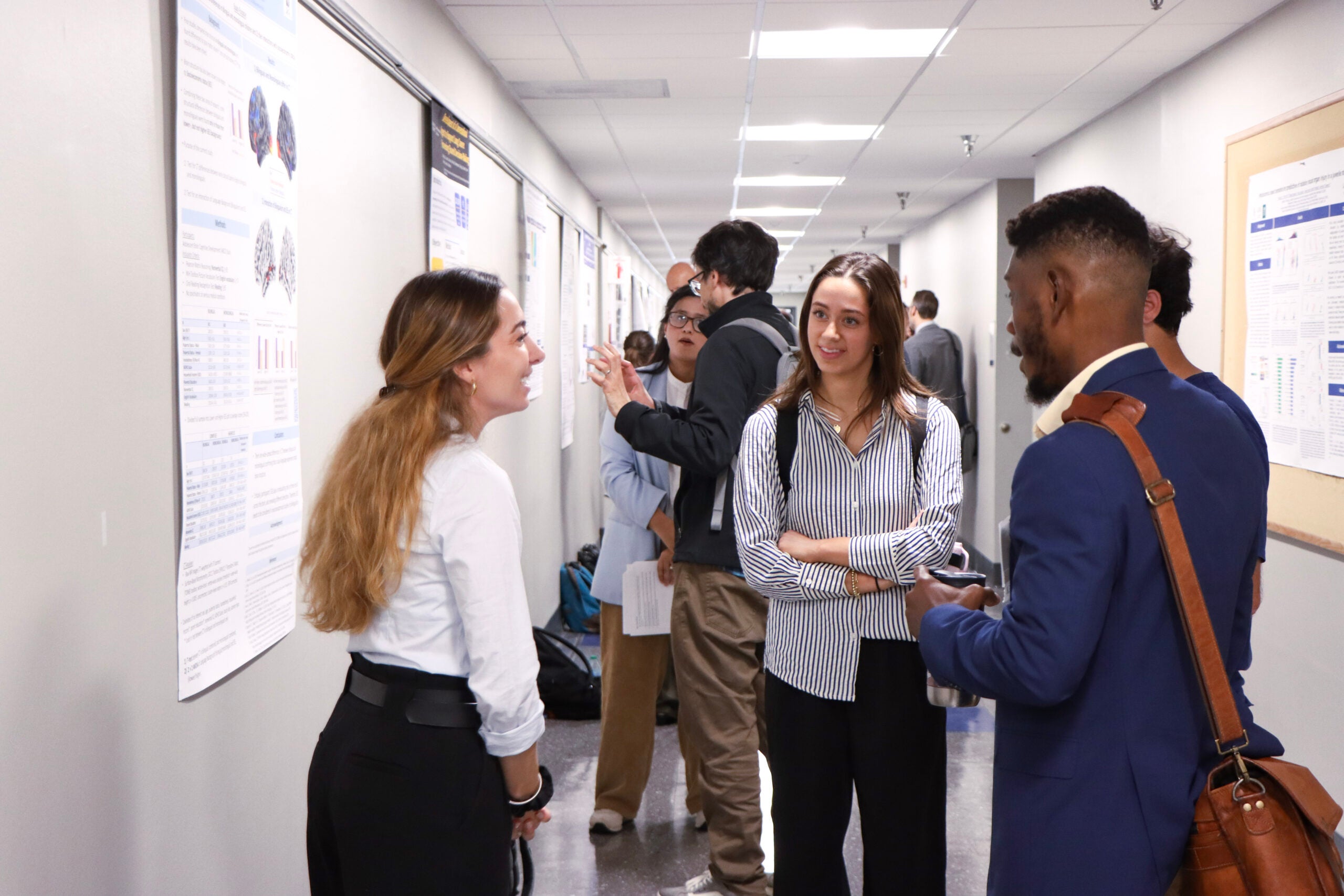Student Research Day Celebrates 40th Year at Georgetown
Presenting research to peers and the public is a vital skill for scientists that comes with practice. For many, this practice begins in grad school.
At Georgetown, Student Research Day has given generations of biomedical scientists-in-training their start. This year, Student Research Day celebrated its 40th anniversary on Oct. 15 with a daylong celebration of scientific advancement that included, for the first time, two keynote speakers.
The event featured 18 student presenters from six different master’s and Ph.D. programs within Biomedical Graduate Education (BGE), all vying for a top placement in the oral and poster presentation competitions. Attendees from across Georgetown gathered in the Medical and Dental Building to hear how their peers are investigating the causes of neurodegenerative diseases, improving cancer screenings and treatment and much more.
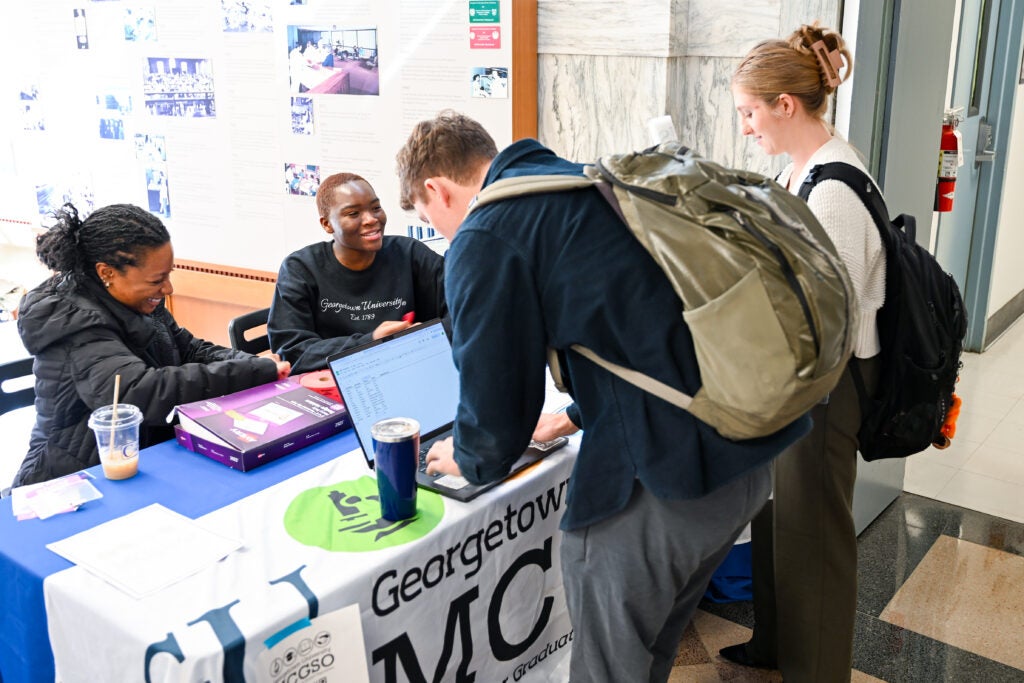
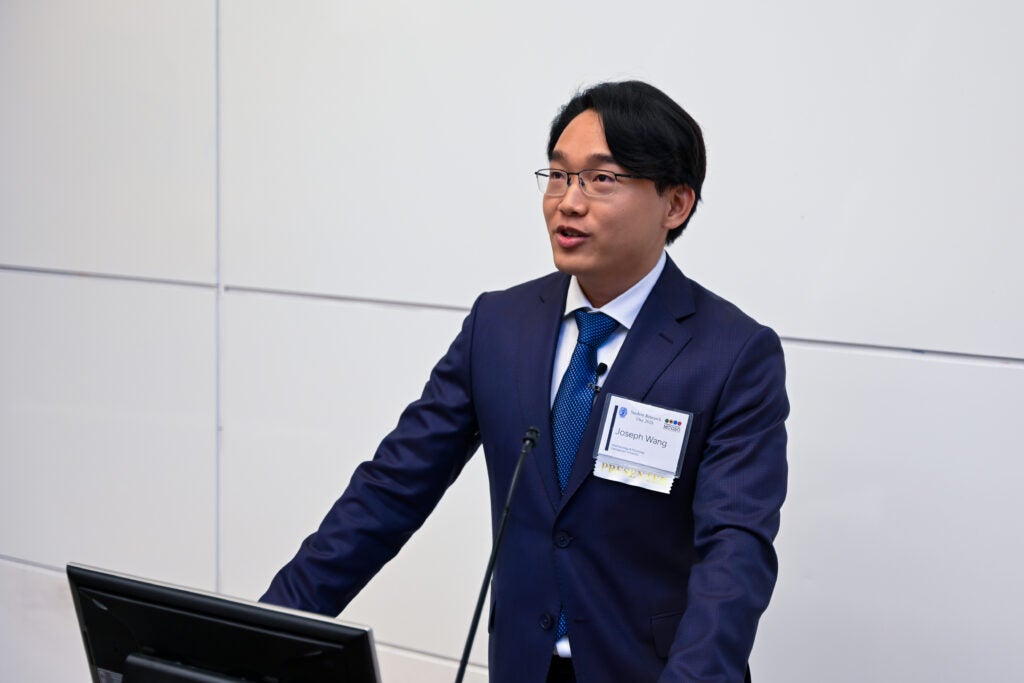
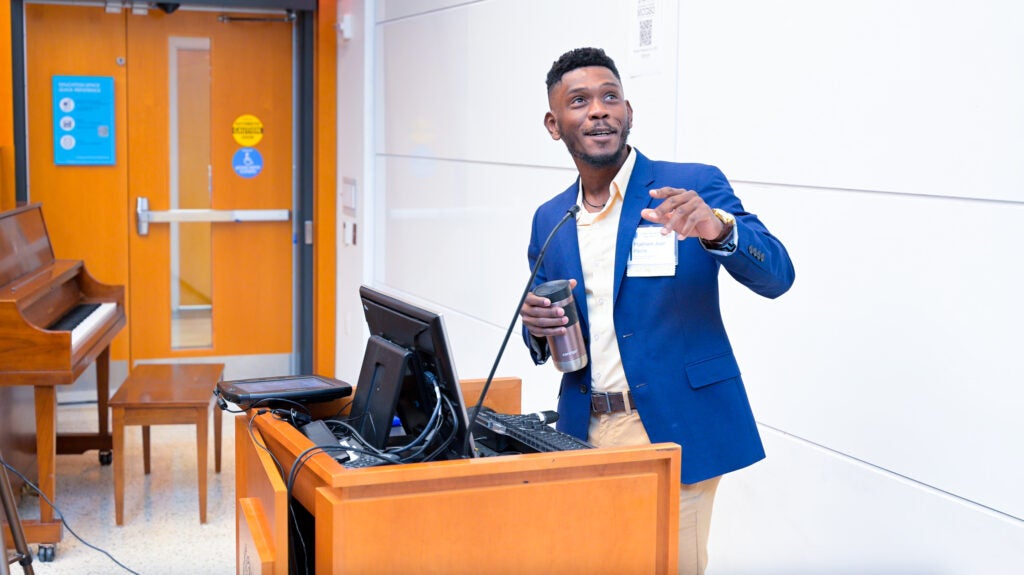
Several student researchers planned the anniversary event while also preparing their own presentations. The Medical Center Graduate Student Organization (MCGSO) hosts Student Research Day in collaboration with BGE.
“Knowing that we’re building on 40 years of tradition while continuing to make the event more inclusive, engaging and representative of our growing graduate community is really special,” said Pauline Wonnenberg (G’27), MCGSO president and Ph.D. candidate in neuroscience. “It’s both an honor and a reminder of how strong the foundation of scholarship and collaboration is at Georgetown.”
Throughout the day, students delivered presentations punctuated by keynote addresses from Rob Patro, an associate professor of computer science at the University of Maryland, and Alexander Zestos, an associate professor of chemistry at American University.
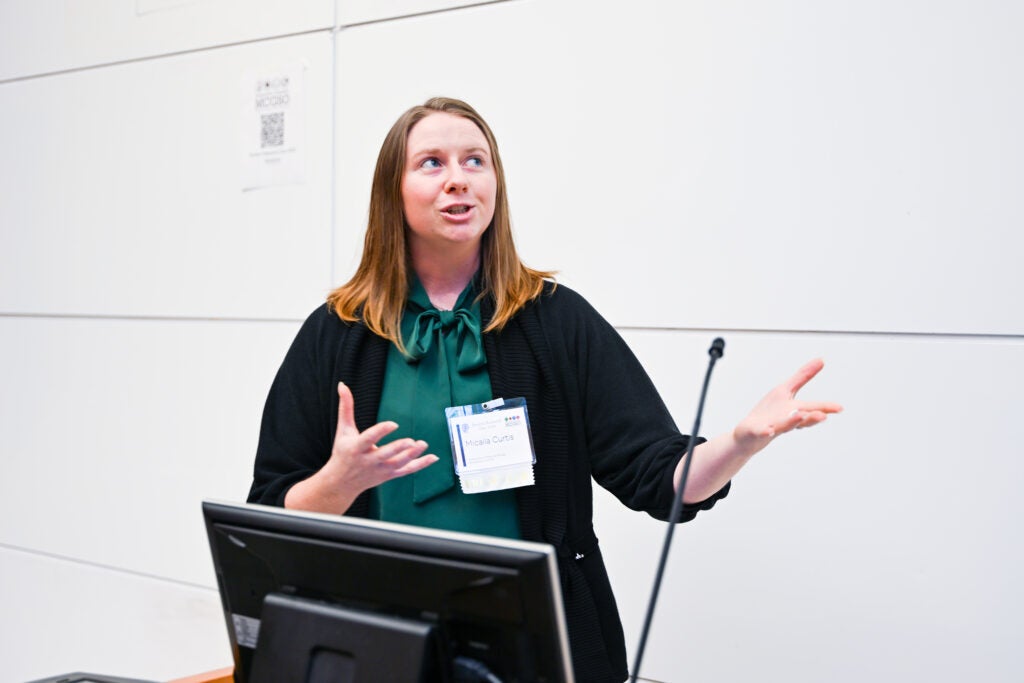
Micaila Curtis presents her research on ascorbic acids, or vitamin C, and their countereffects on osteoporosis at Student Research Day 2025. (Photo by Natalie Rabner)
Micaila Curtis (G’25), a Ph.D. candidate in biochemistry and molecular and cellular biology, tied for first place in oral presentation, following a first-place poster presentation in 2023. Curtis investigated how vitamin C could potentially counteract the effects of glucocorticoid steroids, which can cause the bone-weakening disease osteoporosis when taken long-term.
Curtis said that presenting her research and fielding questions from attendees helped her in preparing for her doctoral dissertation defense the following week.
“To me, that’s a very exciting thing, to be told, ‘Hey, maybe you should consider changing this aspect, or focus on this disease as well,’” she said. “At the end of the day, no matter how knowledgeable someone is, you can’t know everything, and so it’s so important for us to be able to take that feedback from other people.”
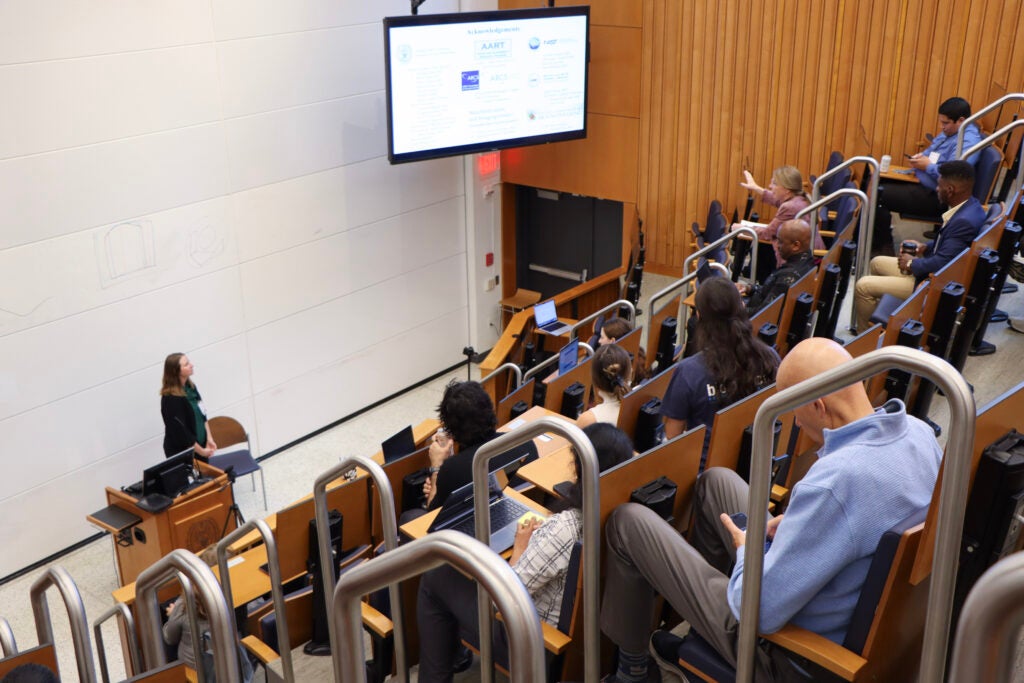
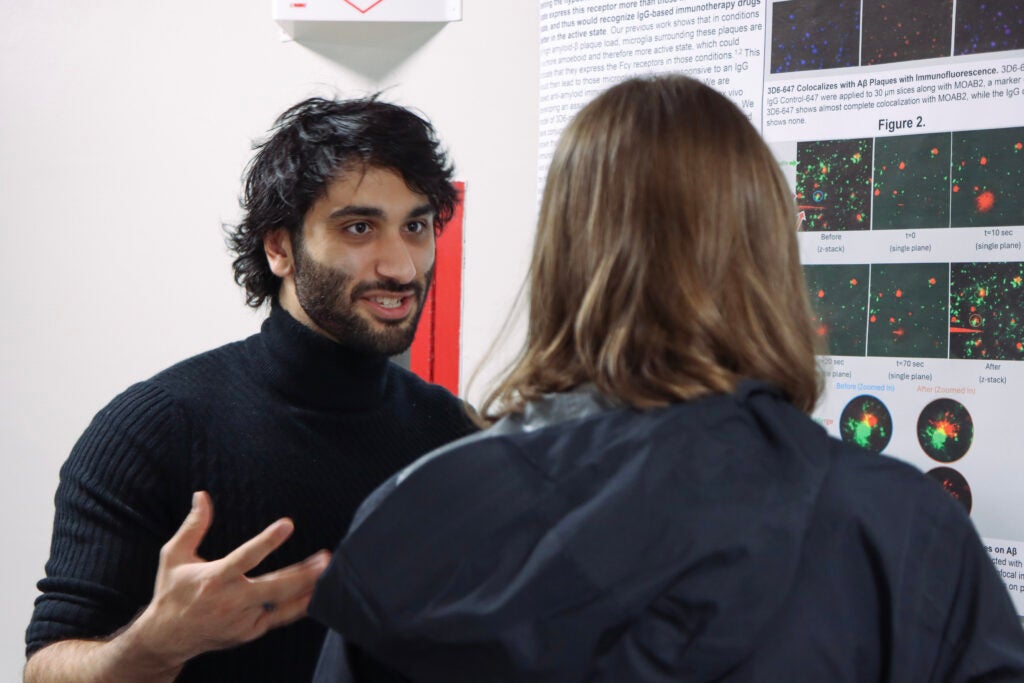
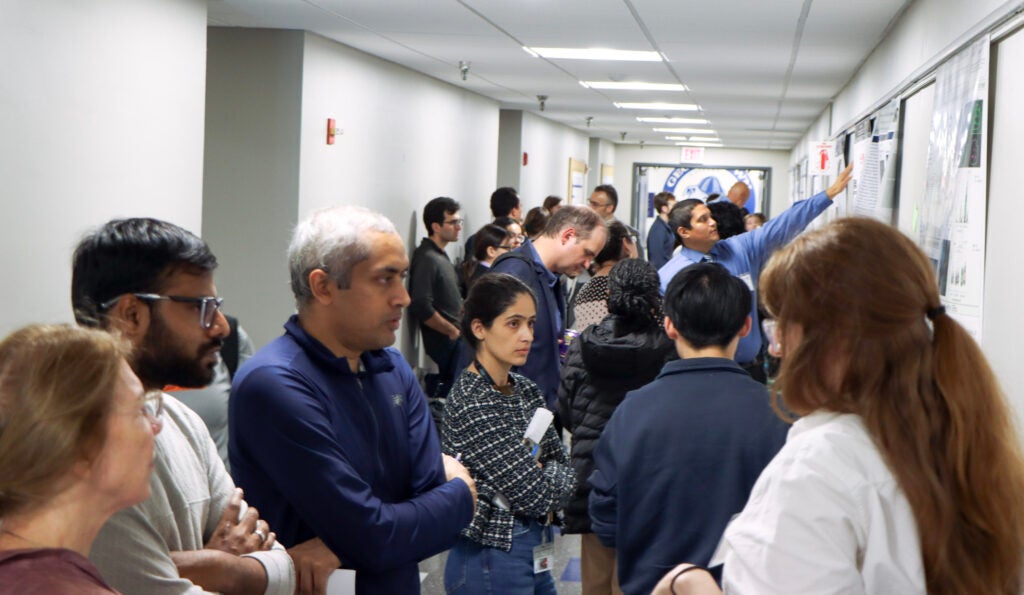
Meet the Student Scientists
Presenting her poster at Student Research Day was so important to Natalie Ellis (G’25) that the recent alumna took the day off from work.
Ellis, who earned her master’s in health informatics and data science in August, works as a clinical data analyst at the Gynecological Cancer Center of Excellence, an initiative of the Uniformed Services University and the Henry M. Jackson Foundation for the Advancement of Military Medicine.
Her research compared over 78,000 patients’ survival rates for epithelial ovarian, fallopian tube and primary peritoneal cancers based on different timelines of chemotherapy treatment after tumor reduction surgery. Clinical guidelines do not offer an optimal timeline for chemotherapy treatment after this procedure, Ellis said, and her analysis showed that starting chemotherapy within three weeks of a debulking surgery was associated with lower survival rates.
“I hope that it will save lives,” Ellis said. “I’ve had family members die of these diseases. That’s why I’m specifically interested in not just cancer but gynecological oncology. I’m honestly really honored to be part of work that I think can be so impactful.”
Ellis started this research while in grad school and said the project directly led to her being hired into the medical team after graduation.
“My program equipped us with a diverse toolkit in data analysis techniques, and I use bits and pieces of everything I learned in what I do now,” Ellis said.
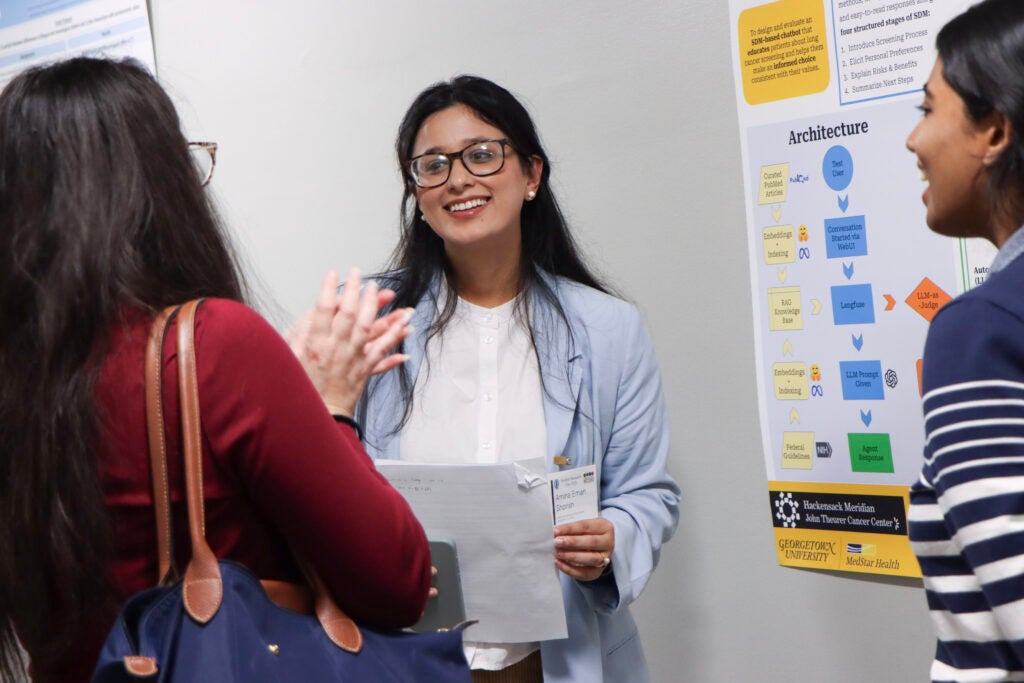
Amina Shorish speaks with Student Research Day attendees in front of her poster, “Development of a Conversational Agent to Support Lung Cancer Screening Shared Decision-Making.” (Photo by Katie Rice)
For Amina Shorish (G’26), Student Research Day was an opportunity to present research for the first time.
Shorish is completing her master’s in health informatics and data science while working as a lead data scientist at a customer experience-focused AI tech company. Using peer-reviewed public health sources and feedback from physicians, her Georgetown research team developed an AI chatbot to educate patients about lung cancer screenings.
“I’ve actually worked in the field for five years now, but I’ve not done any sort of research publication and have no experience presenting posters or projects, so this was great for me,” Shorish said.
Lung cancer is the leading cause of cancer deaths in the U.S., but few patients eligible for lung cancer screenings complete them. Shorish found that in simulated interactions, her team’s chatbot effectively evaluated patients’ lung cancer risk factors, empathetically guided screening decisions and suggested next steps for care.
Shorish said she prepared notes for the poster session but hardly used them, since discussing her research came more naturally than she thought. She received valuable feedback at this year’s event and is already excited to put it to use in next year’s Student Research Day.
“I’m hoping that next year, I can apply again with my own personal project,” she said.
Vlad Dobrin (M’31), vice president of MCGSO and an M.D./Ph.D. student in neuroscience, has big plans for future Student Research Days, including recruiting more keynote speakers from partner universities. He welcomes all members of Georgetown’s biomedical education community to participate and attend the annual event.
“Whether it is the 40th, 50th or 100th year, I am confident each one will be excellent because the community of research, the mentorship and the quality of students and faculty are always top-notch,” he said.
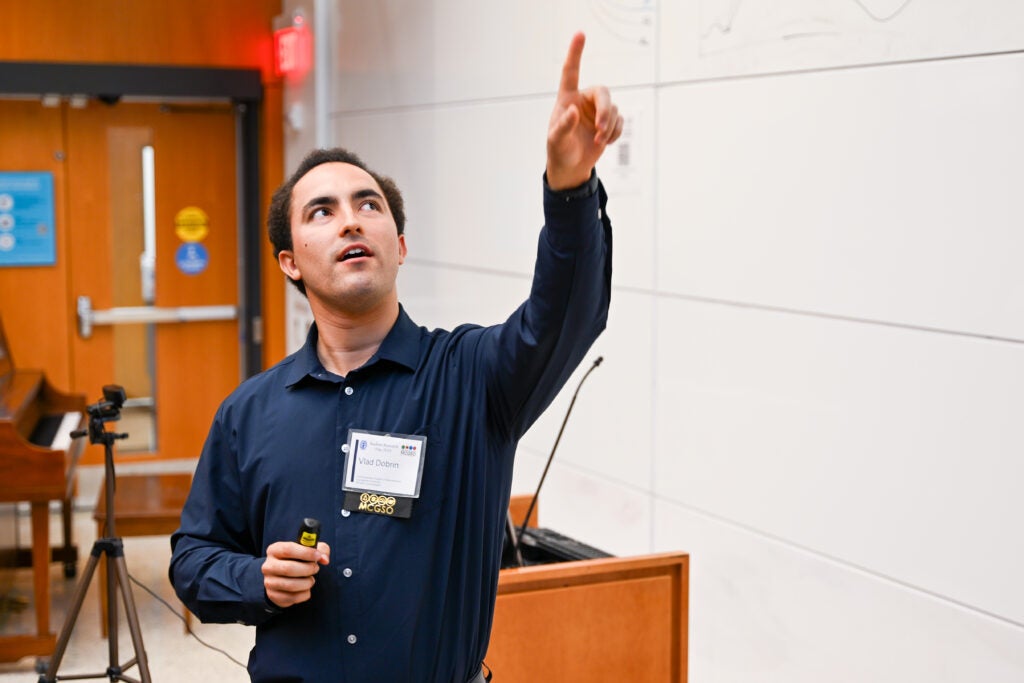
MCGSO Vice President Vlad Dobrin delivers his presentation, “High and Low Auditory-Motor Speech Synchronization,” during Student Research Day 2025. (Photo by Natalie Rabner)
- Tagged
- Biomedical Graduate Education
- Katie Rice
- M.D./Ph.D.
- master's in health informatics and data science
- Medical Center Graduate Student Organization
- Ph.D. in biochemistry and molecular & cellular biology
- Ph.D. in microbiology and immunology
- Ph.D. in neuroscience
- Ph.D. in pharmacology and physiology
- Ph.D. in tumor biology
- Research
- Student Research Day
